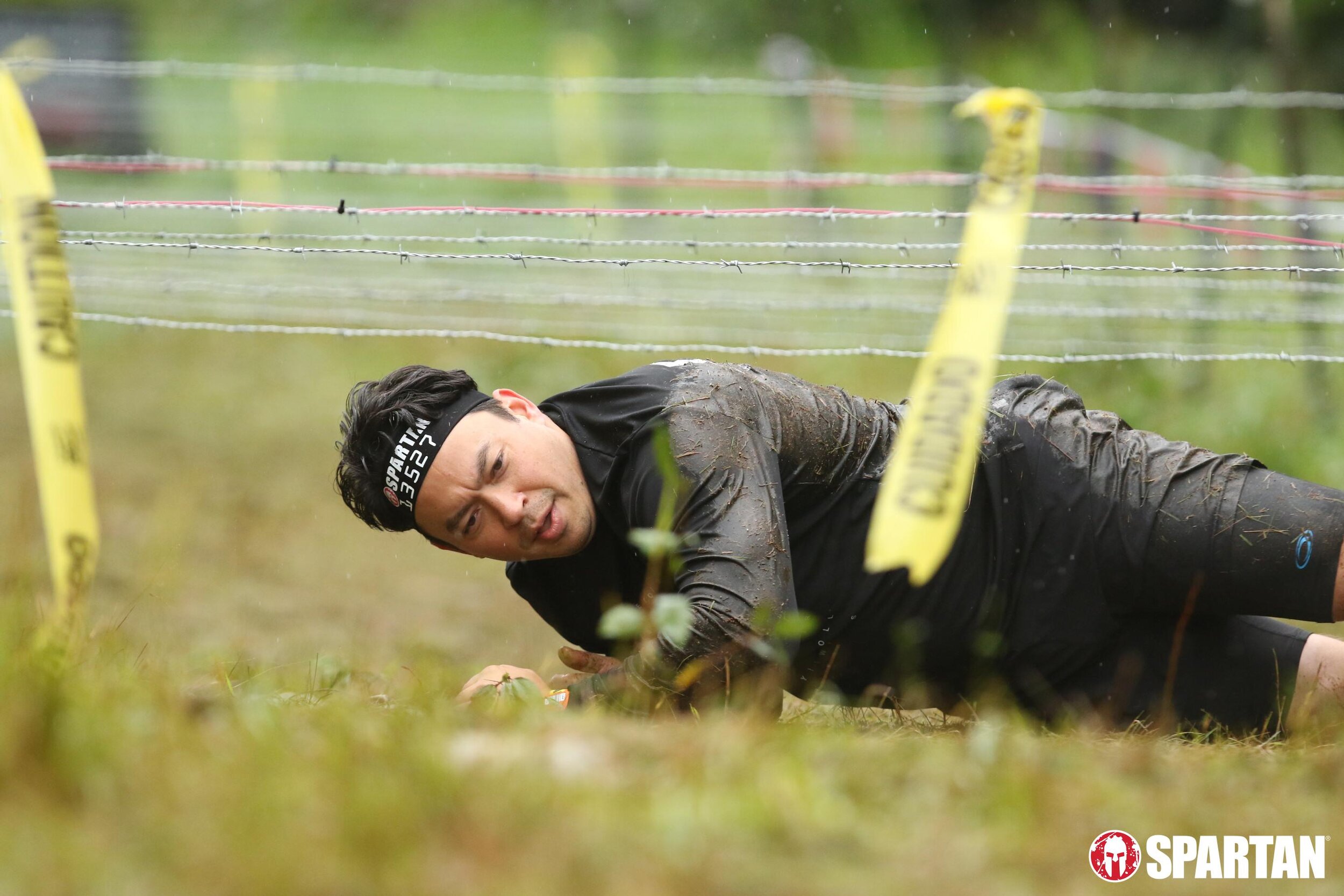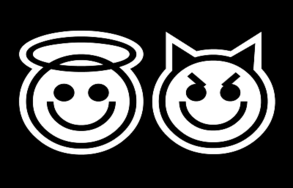Mindset Monday: Discipline Isn’t What You Think It Is
When most people think of discipline, they picture something rigid. Harsh. All-or-nothing. The idea that being "disciplined" means you're 100% on track all the time, no excuses, no compromise. And if you're not that? Well, then clearly, you're just not trying hard enough.
But that version of discipline? It's not only unsustainable, it’s completely backwards.
True discipline isn’t about being hard-core every single day. It’s not about waking up at 5am to crush your workout, eating perfectly clean meals, and slashing through an endless to-do list with military precision. Real discipline is about consistency and adaptability. It’s about the ability to keep going, even when life throws a wrench in your plans. Especially then.
As James Clear puts it:
"Mental toughness is not skipping the days that are easy to skip."
And:
"In practice, consistency is about being adaptable. Don’t have much time? Scale it down. Don’t have much energy? Do the easy version. Let your habits change shape to meet the demands of the day."
These quotes hit the heart of it. Discipline isn’t about gritting your teeth through every challenge or sticking to the plan no matter what. It’s about finding ways to still show up, even when your circumstances change. It’s about remaining aligned with your goals, even if the route shifts.
Discipline Is a Practice, Not a Personality Trait
There’s a common misconception that some people are just naturally disciplined: born with an iron will and superhero-level commitment. But the truth is, discipline is a practice. It’s not something you are, it’s something you do, and something you build.
The most appropriate definition I’ve found is: “to train oneself to do something in a controlled and habitual way.”
And if you zoom out on the word itself—think about "disciple"—you realise it’s rooted in learning. The word comes from the Latin discipulus, meaning ‘learner’, derived from discere, meaning ‘to learn’. In Old French, "deciple" reinforced this idea of being a student or apprentice. So when we talk about "discipline," we’re not just talking about control, we're talking about commitment to the process. Discipline, in that sense, is about being a committed learner. Someone who engages in the process of becoming the kind of person who can live the kind of life they want. It’s about staying in the game long enough to evolve.
That means discipline is cultivated over time, through repetition, through showing up, through learning. And yes, through failing sometimes too. In fact, one of the most overlooked traits of disciplined people is that they’ve developed the skill of recovering quickly. They don’t wallow in guilt. They don’t throw in the towel at the first setback. They course-correct and keep going.
A Real-World Example: When the Plan Goes Out the Window
Earlier this year, I took on a massive backyard project: tearing out our old wooden deck and replacing it with a paver patio and retaining wall. It was an enormous job, and I did nearly all of it solo.
I’m talking thousands of pounds of concrete blocks, gravel, sand...plus all the excavation. I still had my regular work, family life, and household responsibilities to manage. Some days I had 11 hours straight to pour into it. Other days, I squeezed in 30 minutes between coaching calls and dinner. A few days, I didn’t physically lift a thing…I just reworked plans, solved problems, or reset after something went wrong.
The weather didn’t help either. This was during spring in the BC Lower Mainland, so some days were blazing hot sunshine, others were torrential downpours. Both extremes made the work physically harder and more mentally draining. But I kept going, adjusting as needed.
At one point, I had to tear out a section I’d already built and re-do it entirely. That sucked. But it was necessary. Had I been rigidly attached to the original plan, I would’ve wasted time, energy, and ended up with a result I wasn’t happy with.
In the end? The finished project was different from the original vision. But it was better.
That experience taught me (again) that consistent effort, even if inconsistent in form, is how big things get done. If I’d waited for perfect conditions or full days off, I’d still be staring at a pile of gravel in my yard.
The Solstice Run That Almost Didn’t Happen
That backyard project also meant sacrificing something else: my training.
At the time, I had a major run on the calendar—my Solstice Run, where I planned to run from sunrise to sunset on the longest day of the year. But for nearly a month during my peak training window, I didn’t run at all.
Initially, I panicked. I thought, “How the hell am I going to be ready for this?” But then I took a step back. I was spending hours a day pushing heavy wheelbarrows uphill, lifting and stacking concrete blocks, doing the kind of grind that absolutely builds stamina and strength. Just not in the traditional way.
I reframed it. My training didn’t stop, it just looked different. And when I did get back to running, I noticed something wild: my pace and hill climbing had actually improved. My body had adapted. My cardiovascular capacity had increased. I was still moving toward my goal, even if the path was unconventional.
That, to me, is discipline.
Discipline vs. Motivation
One of the biggest reasons people struggle with discipline is because they’re waiting to feel motivated.
We see this all the time in The Balanced Burn. Motivation is exciting at the beginning. It’s what gets people started, but it’s not what keeps them going. Motivation is unpredictable. It shows up when it wants to. Discipline, on the other hand, is built. It’s deliberate.
When you let go of the idea that you need to feel like it to take action, you free yourself up to make real progress. The goal isn’t to be constantly inspired, it’s to make showing up your default, even if the effort is smaller on some days. As we remind clients in the Week 2 mindset lesson: the people who are successful in the long term aren’t the ones who are the most motivated. They’re the ones who take imperfect action, repeatedly.
This is where adaptability comes in. Discipline isn’t doing the most, it’s doing something, even when you’re tired, distracted, stressed, or discouraged. And that’s where real change comes from.
What Gets In the Way?
So why don’t more people take this approach?
Honestly? Mental inflexibility.
People get locked into a picture of how their journey “should” look, and anything that deviates from that becomes unacceptable. If they can’t do the full workout, they skip it altogether. If they eat one off-plan meal, they write off the whole day or the whole week.
They believe discipline is an all-or-nothing game, when in reality, it’s all-or-something.
A lot of it also comes down to ego. We worry about what others will think. We fear being judged for our “less-than-perfect” efforts. But the truth is? Most people aren’t watching. And if they are, it’s usually a brief “good for you” or “that’s too bad” and they move on with their day. Anyone who spends real time judging your imperfect progress probably isn’t someone whose opinion needs weight in your life.
Most of the time, the harshest critic is the one in the mirror.
For My Clients: What Adaptable Discipline Looks Like
With my clients, this conversation shows up all the time.
For my nutrition coaching clients, it means letting go of the "start hard, fall hard" cycle. It means realising that one off-plan meal isn’t failure, and that the goal isn’t perfect adherence but building trust in themselves over time. It means choosing "better", more often, and not worrying about "perfect".
For my training clients, it means recognising that a short walk after dinner counts. That strength training doesn’t need to be an hour to be effective. That even when the kids are sick or work gets nuts, something is always better than nothing. That some days, your 100% is only 20% of your normal, and that's still better than nothing.
And this is one of the most common things I tell clients:
THAT’S TOTALLY OK.
Didn’t get the workout in? That’s totally OK. Stretch instead.
Ate something you didn’t plan on? That’s totally OK. Own it, learn, and move on.
Low on energy? Do the easy version today. You showed up. That matters.
Micro-Actions Matter More Than You Think
It’s easy to dismiss small actions when you’re focused on big goals. But discipline doesn’t usually show up in grand, cinematic gestures. It shows up in the boring stuff. The repeatable, unsexy things you do over and over again that no one else sees. The kind of stuff that’s easy to skip because it doesn’t feel like it’s making a dent…until one day, it does.
Those micro-actions are how momentum builds. And momentum is often more valuable than motivation. You’re not just stacking behaviours; you’re creating internal evidence. Every small choice sends a signal to your brain: “This is who I am now.”
So yes, walking around the block matters. Choosing protein at breakfast matters. Saying no to something out of alignment with your goals matters. They might not seem like much in isolation, but they’re laying track for the person you’re becoming.
Discipline is often built in the small, quiet moments—the ones no one sees.
Choosing the apple over the chips.
Taking a five-minute walk to clear your head.
Drinking your water before your coffee.
Leaving a few bites behind instead of cleaning the plate.
These moments don’t scream “transformation” on their own. But stacked together over time? They shape everything. They build the identity of someone who takes care of their health. Who follows through. Who keeps moving forward.
So if you’re in a tough season right now, if life is throwing curveballs, if motivation is MIA, if progress feels painfully slow, ask yourself:
What’s one small thing I can do today to move toward the life I want to lead or the person I want to be?
Then do that thing. However small. However imperfect. However messy.
Identity and Self-Talk: Who You’re Becoming
One of the things I talk about with clients all the time is that actions shape identity. Every time you show up, even imperfectly, you reinforce a version of yourself that follows through. And how you talk to yourself during setbacks plays a big part in that.
If you haven’t already, check out our earlier Mindset Monday post How to Talk to Yourself When You Mess Up. It walks through why guilt and self-judgement so often sabotage progress—and how to shift into something more helpful.
You don’t need to lie to yourself with empty affirmations. But you do need to practice talking to yourself like someone you care about. Instead of “I blew it,” try “That didn’t go as planned, but I’m still in it.” Instead of “I’ll never get there,” try “This part is hard, but I’m figuring it out.”
Discipline thrives in that space where you’re honest, but also compassionate. Where your inner voice supports progress instead of tearing it down.
Final Thought: Progress Over Perfection
At the end of the day, this is what I want you to remember:
Discipline isn’t about the big, heroic efforts. It’s not about perfect weeks or flawless meals or gym streaks.
It’s about being the kind of person who keeps showing up.
Even when it’s hard. Even when it’s messy. Even when it’s not what you pictured. Even if it means taking one or two steps back or sideways before you can move forward again.
Because the truth is, the people who reach their goals aren’t the ones who start the hardest. They’re the ones who adapt, adjust, and stay in the game.
Keep your eyes on the prize.
That’s real discipline.
And it’s absolutely within your reach.



